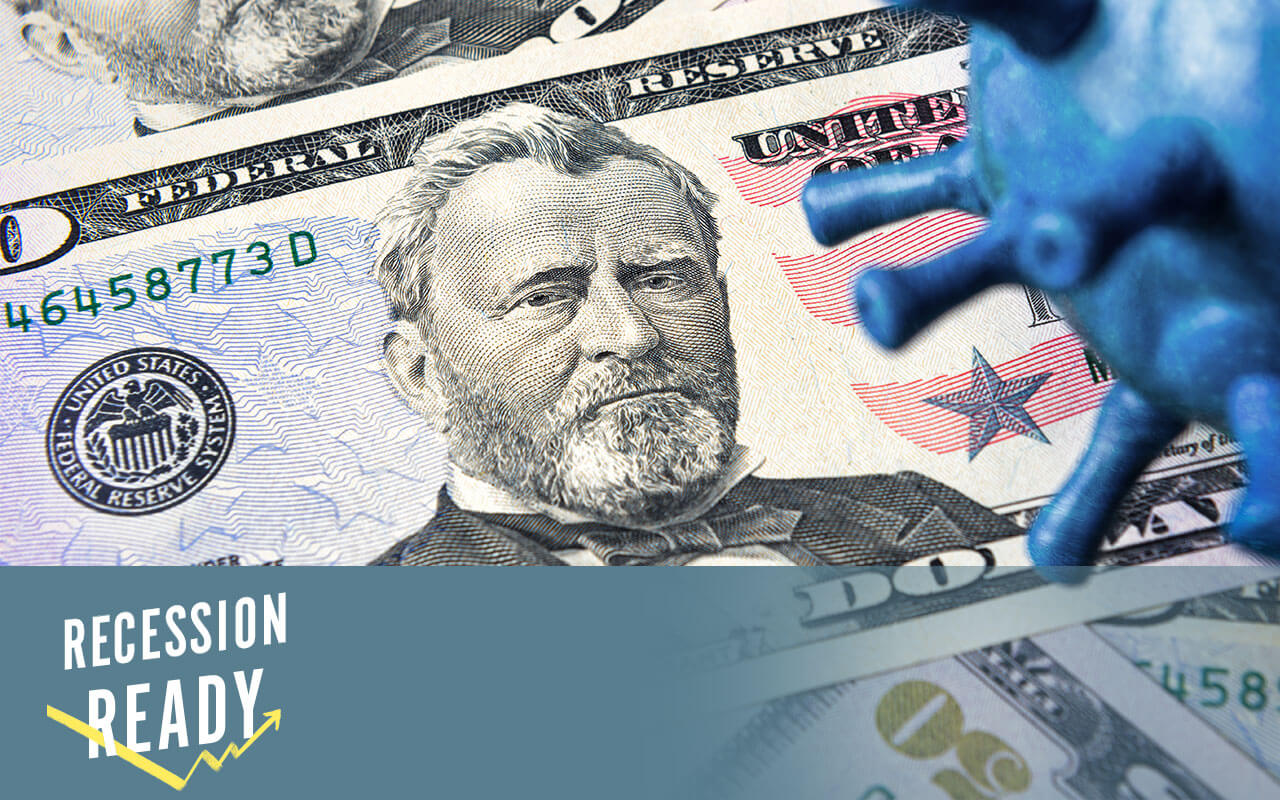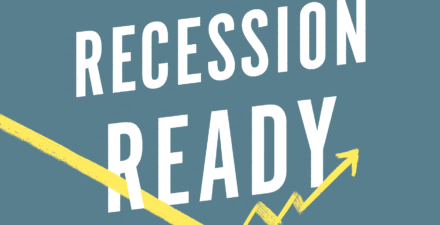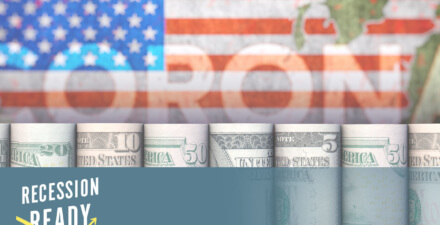Equitable Growth and The Hamilton Project bring together policymakers and academics to discuss how to fight the coronavirus recession

At a June 8 online event sponsored by the Washington Center for Equitable Growth and The Brookings Institution’s The Hamilton Project, key policymakers and academics discussed how the coronavirus recession is causing the loss of record numbers of jobs, threatening businesses nationwide, worsening existing racial inequities, and posing stark challenges to state and local governments. The participants presented evidence-based proposals for how the United States can do a better job of shortening and limiting the pain from this and future recessions.
This week’s webcast, titled “Recession Ready: Fiscal Policy Options to Support Communities and Stabilize the Economy,” featured Rep. Don Beyer (D-VA), who serves as vice chair of the Joint Economic Committee; former chair of the president’s Council of Economic Advisers Jason Furman, who co-wrote a chapter in Recession Ready: Fiscal Policies to Stabilize the American Economy, which the two event-sponsoring organizations published in May 2019, and former Philadelphia Mayor Michael Nutter, as well as the co-editors of Recession Ready, Equitable Growth CEO and President Heather Boushey and Jay Shambaugh, director of The Hamilton Project.
Their proposals, in brief, call for stronger automatic stabilizer programs, which turn on automatically in an economic downturn to help workers, families, businesses, and state and local governments and then turn off when the economy recovers. Rather than waiting for action by Congress, significant changes in economic data—generally, unemployment rates—serve as the triggers for turning the programs on and off. When unemployment rises, the programs turn on. As it falls, they gradually turn off.
The proposals were first encapsulated in Recession Ready. In the book, experts from academia and the policy community proposed six big programmatic ideas for automatic stabilizers, including two entirely new initiatives and four significant improvements to existing programs.
Kicking off the June 8 event, Equitable Growth’s Boushey noted that while it may be too late to enact programs to trigger on at the beginning of this recession, it is not too late to adopt such reforms and have them turn off as the economy recovers. They could then be in place for the next recession, she said.
Boushey spoke to the severity and unequal impact of the current pandemic and resulting recession, noting, “The pain is falling particularly hard on Black and Latinx people, who, as a result of pre-existing racial inequalities—including health disparities, wealth and income divides, and occupational segregation, especially into essential industries—are dying in greater numbers, and their communities are being disproportionately affected.”
She added, “With Congress considering a new round of fiscal relief legislation, there’s an urgent need for concrete, evidence-backed policy proposals that can soften the recession’s blow and begin to address our nation’s racial and economic fissures.” The event focused mainly on extending enhanced Unemployment Insurance benefits and on the critical need for aid to states and localities.
Rep. Beyer, a strong supporter of strengthening automatic stabilizers, recently proposed extending the Unemployment Insurance provisions from the Coronavirus Aid, Relief, and Economic Security, or CARES, Act as long as national and state labor markets are weak. He also released a Joint Economic Committee report on the use of automatic stabilizers to address the coronavirus crisis.
Rep. Beyer emphasized that a critical advantage of automatic stabilizers is that they avert the kind of multiple political battles that occurred during the Great Recession of 2007–2009 that reduced the certainty of continuing support for workers and the economy, and forced trade-offs that weakened the recovery effort. “In the Great Recession,” he said, “they re-upped unemployment insurance 13 different times. That’s 13 political battles between the House and the Senate, needing 60 votes and the president. And the political costs and just the insanity of doing that pushed us toward automatic stabilizers … because you want something that avoids a political fight, that is there when you need it, and isn’t there when you don’t need it.”
Participants pointed out that states and localities are facing a combination of steep declines in revenues and increased spending needs in the wake of the coronavirus recession. The Hamilton Project’s Shambaugh noted that 1.5 million state and local government jobs are already lost and that significant, broad-based aid was provided to states and cities in previous recessions, but not yet during this downturn. “If you look at 2009 through 2012,” he said, “one of the places that was holding back the economy as the recession was officially over but the recovery was slow was the state and local sector not doing the hiring they would normally do and not doing the spending they would normally do.”
Mayor Nutter described how Philadelphia was affected during his first term by the Great Recession, which began as he was taking office. Before Congress approved aid for the cities, he was forced to carry out “massive cutbacks in services” and had to raise taxes numerous times at exactly the wrong time. “This recession,” he added, “seems tougher, harder, deeper, with a greater impact … I don’t get why the federal government doesn’t think they have a role to play in helping cities and states. What’s getting ready to happen is that cities will probably have to raise taxes again on the same citizens who can’t afford it in the first place. That makes no sense whatsoever.”
Most state and local governments have balanced budget requirements that are imposed by state constitutions or by law. “State and local governments, with their balanced budget requirements, are the automatic destabilizers in our economy,” said Rep. Beyer. “Just when we’re taking away all their income through the recession is when they need to be helping people the most.”
Furman, a member of Equitable Growth’s Steering Committee, highlighted research that shows the economic benefits of recession aid to the states. During the Great Recession, Congress and the Obama administration provided different amounts of aid to the states, effectively providing laboratories for research on the impact of funding. “A number of papers have been published showing the differences,” he said. “And they’ve consistently shown that state and local assistance had a significant multiplier—at least $1.70 for each dollar spent. You get not only the additional [Gross Domestic Product] but also whatever the dollar is buying, such as more teachers or more parks or more healthcare.”
Furman described his Recession Ready proposal for providing automatically triggered aid to the states in a recession, co-authored with Matthew Fiedler of The Brookings Institution and Wilson Powell III of Harvard University. Under the plan, the federal government, during a recession, would increase the federal matching rate for Medicaid and the Children’s Health Insurance Program to avoid state budget cuts. States’ matching rates would vary, depending on their level of unemployment. The program would be designed to offset approximately two-thirds of state budget shortfalls. Like other automatic stabilizers, it would phase out as the economy improved.
Asked what cities need now, Mayor Nutter referred to the nationwide mass protests over the murder of George Floyd by a Minneapolis police officer. “You cannot separate the events of the past week or so from the impact of COVID-19 and the even longer-standing overarching issues of racism and discrimination,” he said. “For every measurable sector of society, we see its insufficiencies laid bare by the coronavirus. And without support from the federal government, those who can least afford to pay will face higher taxes and cutbacks in benefits. Decisions will fall on low-income people.”
Furman estimated that failure to provide significant aid to state and local governments to ease the impact of the current recession would delay the economic recovery by as much as a year. Boushey argued that it was in all the states’ interest to support the states that suffer the most in the recession. “Because we are one nation,” she said, “the extent to which some states recover more slowly affects demand across the country. It affects demand for goods and services in other states. So, to the extent we can use that faster recovery in one state to provide support to those workers who aren’t recovering, the whole nation can recover more quickly.”
In addition to Unemployment Insurance and Medicaid, the proposals in Recession Ready cover direct stimulus payments, infrastructure, the Temporary Assistance for Needy Families program, and the Supplemental Nutrition Assistance Program.
A recording of the Recession Ready event is embedded above and also can be found here.






